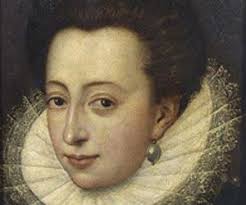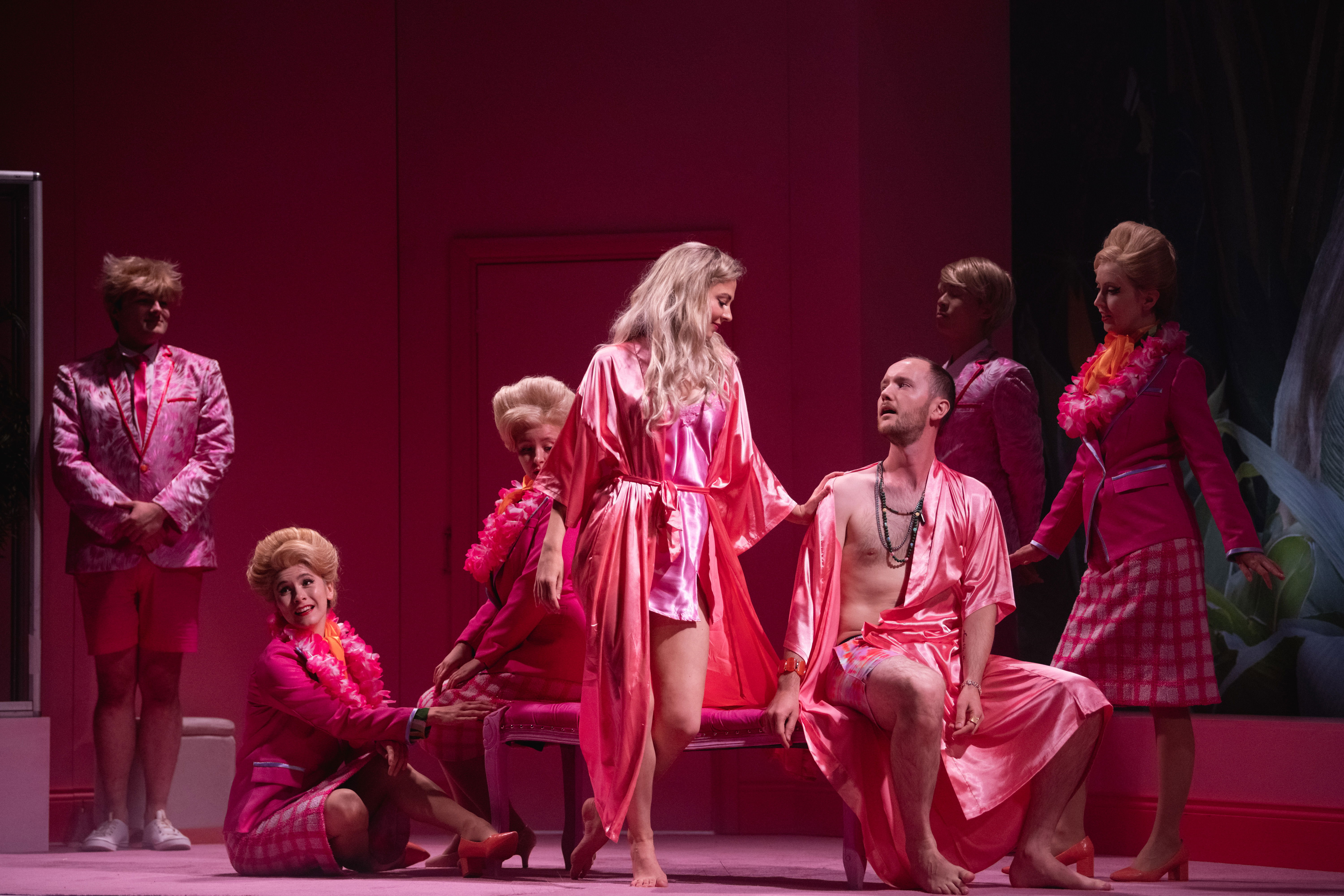Longborough Festival Opera. Francesca Caccini's "La liberazione di Ruggiero".

Longborough Festival Opera. Francesca Caccini's La liberazione di Ruggiero & Freya Waley-Cohen's Spell Book.
Longborough Opera’s exciting production of baroque composer Francesca Caccini's La liberazione di Ruggiero is part of the contemporary re-discovery of women composers, that owes so much to determined musicologists and feminist historians.

Caccini, who worked at the court of the Medici in Florence in the first half of the seventeenth century, was active as a successful composer even earlier than Barbara Strozzi (whose music recently featured at the Proms), and she was among the first generation of composers who created the operatic genre. Caccini was a contemporary of Monteverdi who is usually given the credit for writing the first operas at the court of Mantua around the same time. Caccini’s Ruggiero, composed in 1625, plays a vital role in the history of opera, as it was the first such work to be performed outside Italy. When Maria de’Medici married King Henri IV of France, she kept up her links with Caccini, who had sung at her wedding in 1600, and invited her from time to time to visit the French court. From France, the operatic genre spread to England. So the importance of Ruggiero cannot be exaggerated.
The score for this production has been realized by the conductor Yshani Perinpanayagam and it is attractively melodious, varied and dramatic. It offers expressive recitativo, contrasting solo arias and some full ensembles. The arias have long, intricately embellished lines, which Caccini, who started her own career as a noted singer, knew how to mould.
The plot, taken from Ariosto’s epic poem Orlando Furioso, tells how the crusader knight Ruggiero who has been captured by the enchantress Alcina, is liberated by another enchantress, Melissa. She persuades him to forsake the seductive pleasures of Alcina’s island and return to the stern call of duty on the battlefield, and to his faithful betrothed, Bradamante. The story has some resemblance to the episode in The Odyssey where Ulysses’s crew are captured by the sorceress Circe, who turns men into beasts, and to the Bowre of Blisse episode in Spenser’s Faerie Queene. Alcina turns her captives into plants, and all these talking flowers are released when her spells are broken.

Photograph by Matthew Williams-Ellis.
In the role of Alcina was Lauren Joyanne Morris, an outstanding soprano who ran the gamut of expression between sensuous seductress and furious spurned hag. As Melissa, we had the contralto Simone Ibbett-Brown, whose rich and velvety tones urged Ruggiero (tenor Oskar McCarthy) to forsake idle self-indulgence and return to the nobler ideals of the Crusades. The Prologue and Epilogue are sung by Neptune (Joe Chalmers who has a very noble bass voice). The presence of the sea-god in the vicinity of a Mediterranean island is not surprising but that of the Vistula River (Ruairi Bowen) is a little more so. There is a fine aria about Cupid and love sung by a shepherd (Xavier Hetherington, tenor) who seems to hail from Arcadia.
I would be happy to hear the music of Ruggiero all over again, and would not mind seeing it in a production that put less emphasis on comedy, some of it anachronistic, which I did not personally feel was altogether conducive to appreciating the finer points of Caccini’s art.
The programme paired Ruggiero with a modern work also on the theme of magic and enchantment, Freya Waley-Cohen's Spell Book. A setting of poems by feminist writer Rebecca Tamás, entitled WITCH, it combines a variety of voices with a small instrumental ensemble including strings, woodwind and piano. Waley-Cohen writes for each different instrument with a really intimate love of what it can do, and her vocal writing stretches the capacity of the singers to the bounds of possibility. The players of the Chroma Ensemble were required to display great virtuosity and a resourceful use of their instruments, the strings sometimes using their bows percussively or sustaining long harmonics while the oboe had passages of frenetic excitement. There are urgent rhythms running through the whole composition.
The production was part of Longborough Opera’s Emerging Arts programme, an admirable project to nurture up and coming talent struggling against many adverse circumstances. We look forward to seeing many more seasons at this splendid independent and innovative music festival. Long may it flourish!
Julia Gasper.
https://lfo.org.uk/opera/emerging-artist-double-bill
Longborough Festival Opera
Longborough Moreton-in-Marsh
Gloucestershire GL56 0QF
Company No. 04119186
Registered Charity No. 1087303
Book online at lfo.org.uk
Box Office 01451 830292
To find out more about Francesca Caccini, see https://operawire.com/composer-profile-francesca-caccini-operas-first-female-composer/